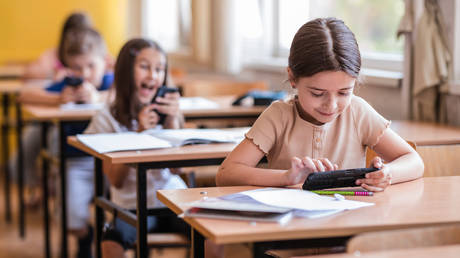Scandinavian Country Plans to Increase Minimum Age for Social Media Use
Norway intends to increase the minimum age for social media access to 15 and implement significantly stricter regulations, according to the country's prime minister.. source:TROIB RTS

The country plans to raise the minimum age for social media use from 13 to 15, along with implementing much stricter controls to address concerns regarding the impact of online activity on young users.
Norway has ramped up its efforts against the social media platforms owned by tech giants, which, according to Store, are “pitted against small children’s brains.” The proposed rules would also restrict tech companies, including Netflix and other streaming services, from collecting personal data from users under 15.
Store emphasized that the initiative aims to protect children from the “power of algorithms.” Despite the current minimum age of 13 for social media use in Norway, more than half of the country’s nine-year-olds reportedly engage with social media, as indicated by the state’s media authority.
“It sends quite a strong signal. Children must be protected from harmful content on social media,” Store told local news outlet VG on Wednesday. He acknowledged the challenges ahead, stating, “We know that this is an uphill battle, because there are strong forces here, but it is also where politics is needed.”
This initiative entails revising the Personal Data Act and establishing an age verification system for social media platforms to better safeguard children from harmful online content.
While recognizing that social media can provide a sense of community for lonely children, Store also noted its “misuse by the industry” and raised concerns about the overpowering influence of algorithms on self-expression. “It can cause children to become single-minded and pacified because everything happens so quickly on the screen,” he remarked.
Families minister Kjersti Toppe articulated that the measure aims to empower parents. “Parents cannot stand alone in a battle with the technology giants. That is why we are considering stricter legislation,” she stated, adding that it’s about “giving parents the confidence to say no. Many parents want to, but don’t feel able to.”
This action aligns with a global trend, as several countries, including France, the US, and Australia, are also implementing regulations to combat screen addiction and shield minors from inappropriate content.
Earlier this year, 200 schools in France began testing a “digital break” that forbids students up to the age of 15 from using smartphones during school hours. Similarly, Russia introduced restrictions in September, banning cellphone use in schools, except in emergencies involving health or life risks.
Ramin Sohrabi contributed to this report for TROIB News












